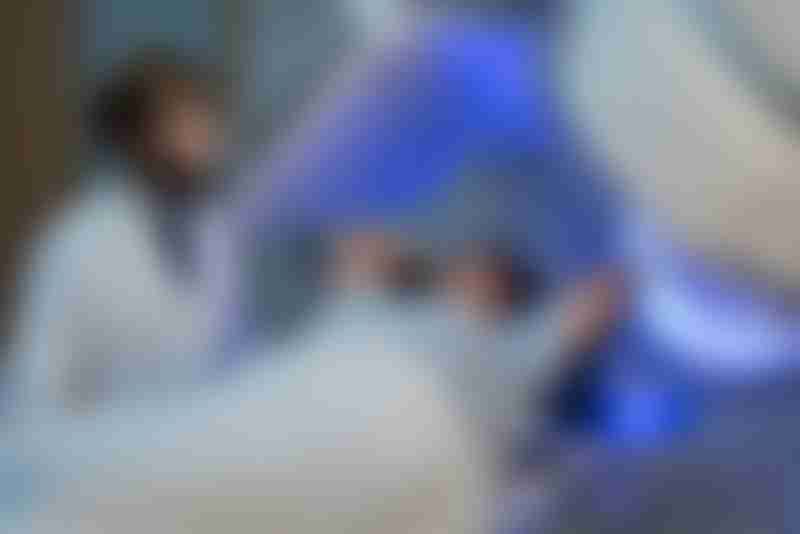Radiation Therapy for Breast Cancer

Source: Shutterstock
Treatment for cancer may often feel like a marathon with treatment after treatment and all of its side effects, but remember that with each treatment session or surgery, you are one step closer to recovery. During your diagnosis or treatment journey, your doctor may recommend you get radiation therapy as part of your treatment plan. If you feel scared about radiation therapy, reading more about it and its potential side effects can mentally prepare you for what you can expect.
What is radiation therapy?

Source: Shutterstock
Also called radiotherapy, radiation therapy is a cancer treatment method that uses high doses of radiation to kill cancer cells and shrink tumors. It works by damaging the DNA of cancer cells beyond repair. When cancer cells are damaged to a certain extent and cannot repair themselves, they stop dividing and eventually die and get removed by the body. It may take days or weeks for the cancer cells to accumulate enough damage to their DNA before they die, but they will continue to die even after radiation therapy. As such, radiation therapy can help to cure cancer, prevent recurrence or stop or slow its growth. Normally, it is used in addition to other treatments, such as surgery and chemotherapy. However, if surgery is not possible, a combination of chemotherapy and radiation may be recommended.
Types of radiation therapy for breast cancer
There are two main types of radiation therapy for breast cancer: external beam radiation therapy and internal radiation therapy. Other less widely used methods of radiation therapy include proton beam therapy and intraoperative radiation therapy.
External beam radiation therapy
This is the most commonly used type of radiation for breast cancer treatment. The radiation in external beam radiation therapy comes from a machine outside the body that aims the radiation beam at the location of the cancer in your body. It is a local treatment, and you will have radiation only at a specific part of your body and not your whole body. The machine may look and sound intimidating as it is large, noisy, and moves around you, but be assured that the procedure is painless and will not touch you at any point.
There are several types of external beam radiation therapy:
- Whole breast radiation
Whole breast radiation refers to the radiation given to the whole breast affected by breast cancer. If you had breast-conserving surgery or are going to have one, you may be given whole breast radiation after the surgery (once the surgery site has healed). An extra boost of radiation may be given to the area where the tumor was removed.
- Accelerated partial breast irradiation
Accelerated partial breast irradiation refers to the radiation given in larger doses over a shorter period to prevent breast cancer from returning to the tumor bed, as most breast cancers often return very close to the tumor bed after whole breast radiation or surgery. There have been concerns about the long-term effects of large doses of radiation over a shorter time. Discuss the benefits versus risks of this type of radiation therapy with your doctor and if it suits you.
- Chest wall radiation
If you had a mastectomy done or are going to have one, radiation will be given to the entire chest wall, the mastectomy scar, and the areas of any surgical drains.
Possible side effects of external beam radiation therapy
Side effects may be experienced soon after external beam radiation therapy; some may only present themselves later. Some possible side effects that you may experience quickly after therapy include:
- Breast swelling
- Skin changes on the breast, such as redness, darkening, and peeling of skin
- Fatigue
- Swelling (edema)
- Tenderness
These side effects are mostly temporary and should not cause you too much concern. Skin changes may take slightly longer (even months) to go away, but they are rarely permanent.
Possible side effects that may present themselves later on and may last longer include:
- Breast changes (smaller breasts and firmer breast skin)
- Brachial plexopathy (damage to nerves in the arm due to radiation, causing numbness, pain, and weakness in the hand, arm and/or shoulder)
- Radiation to the unarm lymph nodes might cause lymphedema (pain and swelling in the arm or chest)
- Weakened ribs due to radiation, which could lead to fractures, though this is rare.
- Development of another cancer due to radiation, but this is very rare.
While these side effects may seem frightening, do not be too worried. There are ways to manage or counter them. Raise any concerns you may have with your doctor, and he/she will address them and suggest ways to deal with them.
Internal radiation therapy
In internal radiation therapy, the source of radiation (may be solid or liquid) is placed inside your body. Brachytherapy uses a solid source of radiation. Seeds, ribbons, or capsules that contain a radiation source are placed in your body near or within the tumor. This radiation source gives off radiation for some time. Systemic radiation therapy uses a liquid source of radiation. The administered radioactive substance travels through the body to tissue, locating and killing cancer cells. This may be given by swallowing the substance, an injection, or an intravenous line.
Possible side effects of internal radiation therapy include:
- Infection
- Breast pain
- Redness or bruising at the therapy site
- Weakness and fracture of the ribs, though this is rare
- Fluid collecting in the breast (seroma)
These side effects may be a concern, but do communicate with your doctor on what to look out for after the radiation therapy, such as signs of infection or what to do if you feel pain or extreme discomfort.
Overcoming the fear of radiation therapy
Whether you are having radiation therapy to cure your cancer or having it to prevent a recurrence, do know that you are one step closer to recovery. Cancer treatment can be overwhelming and draining, so do clarify any concerns you have regarding your treatment with your healthcare team to make the most informed decisions possible. You are not alone on this journey. Talk to friends, family, a counselor, or support groups to express your feelings and fears.